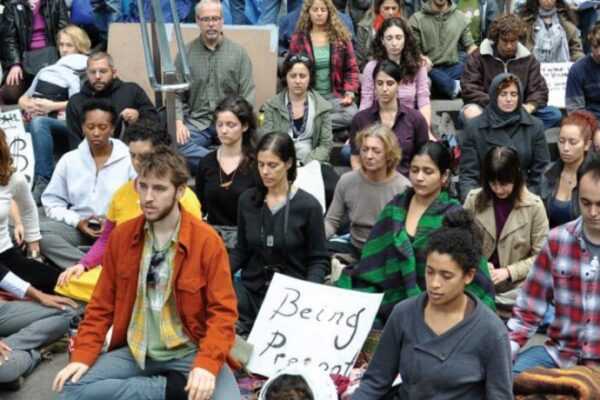Religion Dispatches’ Peter Laarman led a roundtable conversation on religious “nones” with Kaya Oakes, The Nones Are Alright: A New Generation of Seekers, Believers and Those in Between, Sikivu Hutchinson, atheist scholar and author, and CRCC’s director of research and evaluation, Richard Flory.
Here are some excerpts of the discussion. Click here to read the whole piece.
Kaya Oakes: Even the most beautiful liturgy is going to be hollow without a central message that is life-giving and inspiring. And even the most enlightened and progressive message at the heart of that liturgy is going to be lost if it doesn’t also get enacted outside of the walls of an institutional religion.
Richard Flory: I totally agree with [Kaya’s] assessment of why individuals leave their religious homes, but the broader issue is related to larger processes in society, namely the crisis of authority and why anybody should listen to people in authority, or belong to any group that tries to make authoritative claims for individuals, communities and societies. People just don’t trust authority or large-scale institutions in the same way they did 30 or 40 years ago.
Sikivu Hutchinson: Even though black youth may be expressing their dissatisfaction with the orthodoxies and dysfunction of the black church, they are not, by and large, abandoning these traditions wholesale. This has a lot to do with the role the black church—for good or for ill—continues to play in segregated African-American communities vis-à-vis social welfare, cultural cohesion, political engagement and educational opportunity.
Richard Flory: I’ve talked elsewhere about the “evangelical industrial complex,” which includes not only churches but colleges, universities and seminaries, elementary and high schools, publishing houses and other media corporations, authors, speaking tours, conferences, and the like, that really sets evangelical orthodoxy, both theological and cultural. I think this is the larger issue that many younger evangelicals are reacting to and against. They aren’t disinterested in Jesus or being a Christian, but they are completely disinterested in the corporate packaging and boundary patrolling that the evangelical industrial complex produces.
Kaya Oakes: Technology might be a great set of tools, but it cannot replace encounter, and many churches are just terrible at that.
Kaya Oakes (on the spirituality of resistance movements such as Occupy and Black Lives Matter): Perhaps the new spiritual culture is the eruption of a generation coming into its social consciousness and wanting to enact that.
Richard Flory (on the future): Institutions and organizations have to adapt and change or run the risk of going out of business. Religious organizations are no different.
Click here to read the whole discussion.
Richard Flory is the executive director of the USC Center for Religion and Civic Culture.








